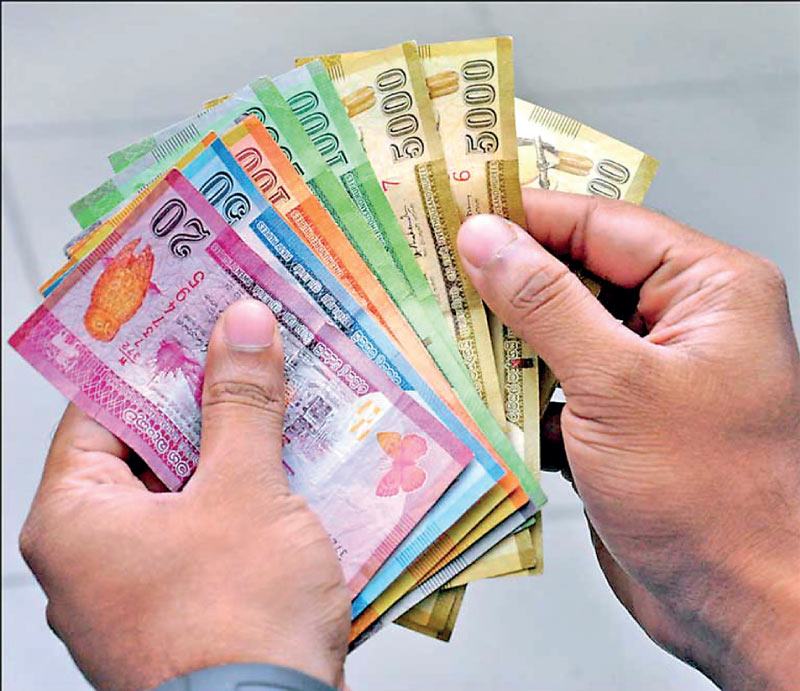Sunday Feb 22, 2026
Sunday Feb 22, 2026
Monday, 12 June 2023 00:20 - - {{hitsCtrl.values.hits}}

Though there is much room for improvement in the current SVAT system, it is a fact that the home-grown system has resolved and provided much relief to many taxpayers
 It was reported in the news recently that the Cabinet has approved a decision to abolish the SVAT scheme, which was originally introduced with effect from 1 April 2011, under the Section of 2(2) of the Value Added Tax Act No. 14 of 2002. Whilst the Cabinet’s other decision pertaining to rationalisation of Value Added Tax (VAT) exemption, is a welcome move, the decision to abolish the SVAT scheme with effect from 1 January 2024, could have drastic adverse repercussions on taxpayers as well as the tax administration.
It was reported in the news recently that the Cabinet has approved a decision to abolish the SVAT scheme, which was originally introduced with effect from 1 April 2011, under the Section of 2(2) of the Value Added Tax Act No. 14 of 2002. Whilst the Cabinet’s other decision pertaining to rationalisation of Value Added Tax (VAT) exemption, is a welcome move, the decision to abolish the SVAT scheme with effect from 1 January 2024, could have drastic adverse repercussions on taxpayers as well as the tax administration.
IMF report
The Cabinet has endorsed the proposal to abolish the SVAT scheme, due to the same proposal being part of the IMF’s tax roadmap for Sri Lanka. (Request for an extended arrangement under the Extended Fund Facility (EFF) – press release; Staff report and statement by the executive director for Sri Lanka issued in March 2023 – IMF Country Report No. 23/116). ‘Appendix 1 – Tax Reforms to be implemented for 2022 - 25/1’ document of IMP reads “Take measures to significantly speed up valid VAT refunds and abolish the SVAT system, with effect from January 1, 2024”. Hence the origin of this proposal that would adversely impact the tax regime of Sri Lanka could be traced to above said IMF report.
The question is what prompted the IMF officers to include this proposal in the said document? Obviously, it’s a misguided representation that was made to the IMF delegation in this regard, though there could be different opinions in relation to this matter. This article analyses the impact of this proposal to abolish the SVAT scheme.
The rationale for introduction of SVAT
The efficiency of processing of VAT refunds is critical for successful implementation of VAT. Inefficiencies in processing the VAT refunds in a timely manner result in building up of massive VAT refunds leading to working capital of the taxpayers being held up at the tax office, causing extremely adverse impact on the cash flows of the taxpayers.
Prior to implementation of the SVAT system, taxpayers including exporters, Zero-rated service providers, persons engaged in any specified projects, registrants under Section 22(7) under the Act who are entitled to claim input tax and VAT refunds pending commencement of taxable supplies, Manufacturers supplying to exporters, providers of specified services to exporters and many other taxpayers who had refunds from the IRD suffered due to the inefficiencies of the tax office to process refunds on a timely manner. Due to massive refund buildups in the past, the room opened for fraud and corruption in relation to VAT refunds as well.
The SVAT mechanism was introduced to suspend VAT Payable by such persons, so that the liquidity position was unaffected and to remove the refunds with the use of Vouchers issued by the IRD.
Room for fraud
It is a fact that many taxpayers in order to obtain their legally due refunds from IRD, resorted to many dubious and shady service providers, that mushroomed in the past who had links with rent seeking IRD officers to expedite their legally due VAT refund claims.
Not to throw the baby out with the bathwater!
Though there is much room for improvement in the current SVAT system, it is a fact that the home-grown system has resolved and provided much relief to many taxpayers, in that at present most of the taxpayers are not inconvenienced in relation to their working capital being help up at the tax office for long durations as in the past. The room for improvement of this home-grown system exists in relation to the degree of compliance, documentation requirement and forms to be maintained and to be forwarded to the IRD office periodically. Hence the attention of the policymakers should be to improve the current process, easing the compliance burden and not to throw the baby out with the bathwater. Abolishment of the SVAT scheme will only replicate the status that prevailed prior to the introduction of the scheme that increased the cost of capital for the businesses.
A Midsummer Night’s Dream – Speeding up VAT refunds
The IMF proposal sets out ‘taking measures to significantly speed up valid VAT refunds’, in lieu of abolishment of SVAT scheme. The moot point is what are these measures that would significantly speed up the refund process? How practical is it to identify and introduce such measures within a 6-month period? To the best of the knowledge of the author these mysterious measures have not been proposed to the IMF by advocates/proponents who advocated and proposed to abolish the SVAT scheme at the end of this year. If there are such measures, it is mysterious as to why such were not implemented in the first instance in the past!
Moreover, stakeholders are aware of the current inefficiencies at the tax office in relation to the processing of other revenue collection activities and the failure of Revenue Administration Management Information System (RAMIS). Very frequently, news items appear in national media regarding the room for improvement in relation to investigation and improvement in tax collections by hunting tax evaders who are not in the tax net, expediting the appellate procedure of aggrieved taxpayers. Inefficiencies due to too many tax files being burdened on a single Revenue Officer etc. In this background, it’s hilarious to think that the IMF statement about expediting VAT refunds is anything more than a whimsical fantasy straight out of ‘A Midsummer Night’s Dream!’ How amusing!
The abolishment of SVAT scheme at the end of the year as endorsed by the Cabinet, will only result in building up massive refunds as in the past at the expense of taxpayers, impacting their cash flows, most of whom are already struggling to manage their businesses due to current economic instability, that would continue in foreseeable future and the high burden stemming from recent reforms to the Tax Regime. While most of the taxpayers have experienced a hike in their respective tax rates, in the case of exporters, the Income Tax rate increased from 14% to 30%. The abolishment of the SVAT scheme will have a major impact on the competitive status of the exporters who are expected to attract much needed foreign currency to the country.
Sri Lanka’s trial and error tax policy making
The Sri Lankan tax regime over the years, has witnessed many adverse impacts due to tax policy makers making erroneous policy decisions, without proper consideration about the policies to be implemented.
Many readers will agree that the Cabinet endorsement to abolish the SVAT scheme at the end of the year, which is based on ill advice, is also another decision that would add to the above-mentioned list, as the time will prove.
(The writer is an Attorney at Law, LLB, FCMA (UK), CGMA; and Principal Tax and Regulatory at KPMG.)